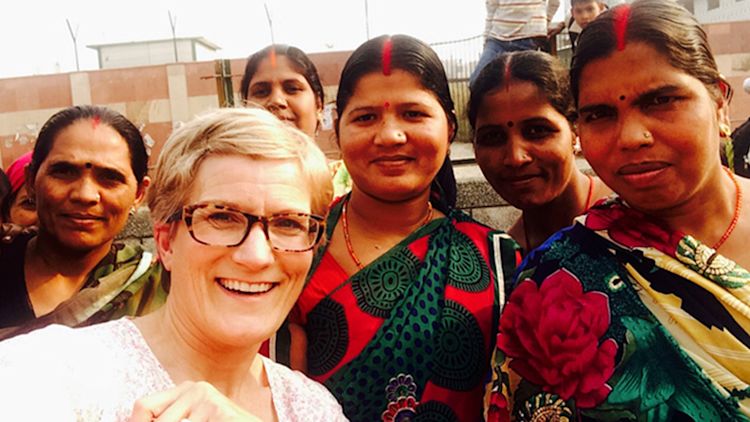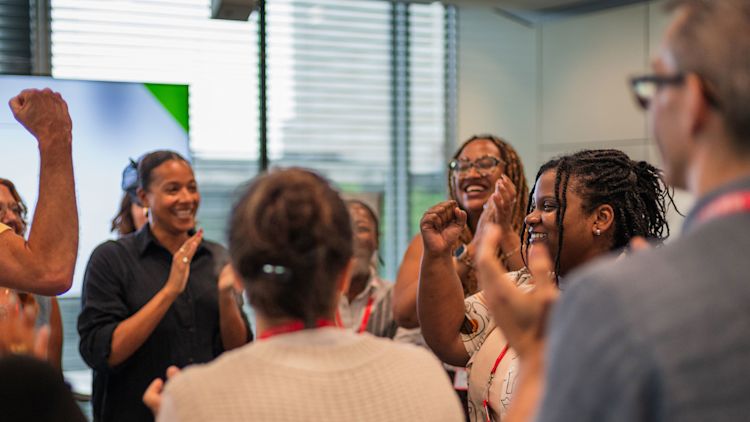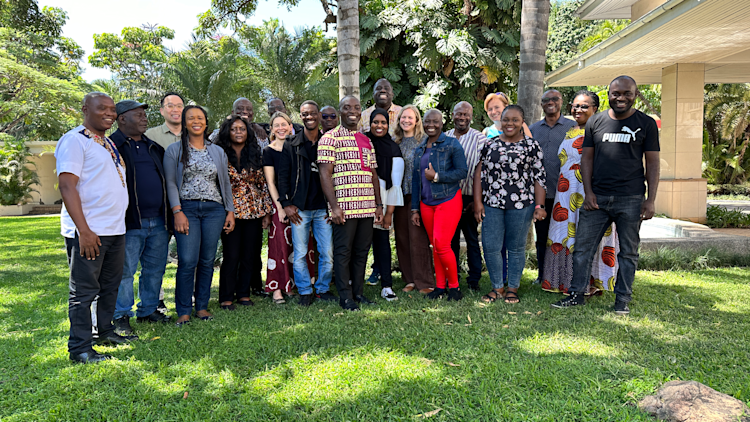
By Jennie Richmond, Head of International Grants, Comic Relief
I recently returned from Delhi, where I had the privilege of visiting a number of Comic Relief funded projects, all of which were working with children and young people. My overall impression from the visit, and from the activities that I saw was one of overwhelming hope and optimism. I said to a friend on my return that if the future of India sits in the hands of these young people (which of course it does) then great things feel possible. At the risk of sounding overly simplistic, it felt like these were positive, courageous, confident young people, and I was inspired.
But please don't let my optimistic introduction mislead you.... these children and young people face daily lives that I cannot even begin to imagine. Tough, tough lives. Some live with uncertainty, insecurity and violence at home; some with no homes at all - sleeping rough on market stalls or in doorways; some do hard physical work in the market or as domestic workers; others have parents who work from morning til night as construction workers, with no security and paltry wages. And all of them live with the shadow of poverty and the restrictions of the caste system restraining them.
But these were strong young people, carrying out roles that here in the UK we would only expect an adult to play. We visited Butterflies - an organisation founded on the belief that children have huge capabilities, and that they should be put in the lead over the decisions about their own lives and over how the project runs. The children involved largely came from living on the streets. They are supported to save the small amounts of money that they earn, and put it into the ‘Child Development Bank’ which is an initiative set up by Butterflies. Being able to save money, even tiny amounts, keeps the money safe and helps the children to think about the future, and the possibilities the future holds for them. The bank is run by children - a six monthly rotation ensures that they have a Bank Manager and Deputy who take and record all deposits and withdrawals from the children. The current Bank Manager and Deputy described with seriousness and some glee the importance of their job and how much they are learning through their responsibilities. Their mental arithmetic for starters was better than mine, let alone the leadership skills, the judgement and the honesty they were showing. Impressive.
We also saw the power of sport in action. Sport provides a hook to build confidence, to get girls participating, to break down barriers between groups, and to convey crucial messages like how to avoid infections. Magic Bus works in a whole range of ways, but always with poor and disadvantaged children, and often using sport as a way in. We played the disease game - chasing white blood cells around a dusty clearing, to raucous squeals! We also visited a netball project with DASRA and the Naz Foundation, where girls from very traditional backgrounds, who just a few months earlier had not been allowed to play sport were now bouncing around a netball court and talking about becoming champions.
One child's story will stay with me though. He was a ten year old (but looked much younger). He was sweet and smiley, but his background was a horror story. He had escaped from a nearby country on a train as a stowaway. No money. No adults. Hidden in a crate. He had run because the abuse he was escaping was so much worse than the insecurity and fear of sneaking into a train on his own and travelling for three days into the unknown. That's what he was running from. He was the same age as my daughter.
So, as I often reflect following a trip to visit the projects that Comic Relief funds - I left with a mixture of emotions. But overwhelmingly the resounding feeling was hope and optimism. Not only because I had the privilege of seeing fantastic projects in action, but because I could see what happens when the children and young people are able to use their skills and knowledge about the issues they face, to shape the projects that will help them.


